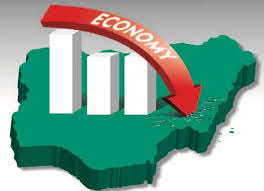In what many have described as shameful, the Nigerian budget continues to be signed between May and June every, making planning proper planning almost impossible. In this report, BENJAMIN UMUTEME looks at issues of budget implementation.
Since the return to democratic rule, budget passage has been a topical issue in the country. Throughout the 8 years of former President Olusegun Obasanjo to late Shehu Musa Yar’adua to Goodluck Jonathan and even this administration the story has not changed as the years’ budget is most times passed between May and June in the same financial year.
The nature of fiscal governance
Drawing from the Organisation for Economic Cooperation and Development (OECD), fiscal governance refers to thoserules, regulations and procedures that influence how budgetary policy is planned; approved; implemented; monitored and evaluated.
Its key building blocks include: budgetary statistics; numerical fiscal rules; multiannual budgetary frameworks; independent national fiscal institutions; and budgetary procedures.
Has anything changed in the budget process?
The present administration came with a promise to return the budget to its proper circle of January to December but three years on nothing seem to have changed, making analysts to wonder if anything has changed at all.
The 2018 budget of consolidation did not become a law until late May 2018. This was after accusations and counter accusations between the Presidency and the National Assembly (NASS).
Experts have described as scandalous the perennial delay in the passage of the nation’s fiscal policy, warning that unless something critical is done the economy will continue to take the hit.
For instance, the same unrealistic projections that marred the performance of the 2017 budget were replicated this year. The current budget has a deficit of N2 trillion amounting to 23 per cent of the entire budget. In the same vein the capital vote is put at N2.60 trillion (inclusive of capital in transfers) representing 30.0 per cent of the budget.
This is further compounded by the electioneering process that has kicked off. Ultimately, if there is no departure from the past and the present approach to budget preparation and implementation, the economy will continue to suffer.
In a chat with Blueprint weekend, presidential candidate in the 2019 election, Jaye Gaskia, said the more things change; the more they are the same.
He said: “This was exactly the situation before this administration came into office. It was part of the things they promised they were going to address. We’ve gotten to a situation that we are still at that level where in the financial year you have not cashed backed any releases for first quarter expenditure.”
“That is why there are no sustainability in the programme that we undertake and why we have so many abandoned projects in the country. It’s the reason why previous year’s plans are not linked to the present one. You can’t plan that way.
The delay in getting out the budget document especially since the return to democratic rule in 1999 hampers the execution of infrastructure projects which are sensitive to weather conditions as contractors suspend work whenever the rains become heavy.
This has become a major drag on the country’s economic growth especially caused by undue delays in the passage of the budget, the lengthy procurement process which takes several months to conclude, non release of funds in time as well as corrupt practices by officials of government.
Many have expressed frustration at the government’s country’s inability to get its budget going. According to the Managing Director, CRC Credit Bureau Limited, Ahmed Popoola, the delay in budget implementation does not bode well for the economy.
“It’s really shortchanging the citizens and the populace at large because a lot of the project that are meant to have been implemented either they end up not been done at all or they’re rushed and the people don’t get value for what is put in the budget.”
For Professor of the Capital Market, Uche Uwaleke, allthese manifest in shoddily executed projects, abandoned projects which litter across the country, costly projects as a result of frequent variations in contract price.
“Also, when money is not released on time or government officials take a large chunk of the contract fee as kickbacks, the contractor is hamstrung in delivering standard jobs. For a country like ours yearning for enabling infrastructure and human capital development, the importance of budget implementation cannot be over emphasized,” he added.
Addressing these drawback
For Dr. Doyin Salami of the Nigeria Economic Summit Group, the critical issue isresolving the budget cycle misalignments-January to December cycle.
According to Dr. Salami, howndoes the country get back to a meaningful budget planning and implementation cycle? “How do we move beyond reliance on macro data for budgetary planning to accommodate micro dataas well?
“Does the MTEF process adhere to a reasonable fiscal cycle?” he asked rhetorically.
To resolve this perennial drawbacks, Uwaleke, who is also the Head, Banking and Finance Department of the Nasrawa University in Keffi, opined the government should revert to the January to December timeline as enshrined in the constitution taking into consideration seasonal factors.
“Against this backdrop, the government should recognize the urgency to fast track the implantation of capital budget in view of the fact that it arrives late.
“To break this jinx, a comprehensive budget reform is required entailing the entire process of formulation, legislative approval and Presidential assent, execution and control.
“This should be codified in a budget law that clearly spells out the time lines for various budget activities including sanctions for any breach. The procurement Act can also be amended to shorten the process as well as plug loopholes for abuses.
“The Finance Ministry should ensure that funds are released on time and together with the Ministry of Budget and National Planning put in place appropriate mechanisms for monitoring and evaluation.
In the view of professor of Financial Economics at the University of Uyo, Awka Ibom State, Prof. Leo Ukpong, a one way to stem the tide of bureaucratic bottlenecks around the budget is to criminalise lateness.
“The delay is really political rather than bureaucratic process. Besides constitutional amendment or tie it with some kind of penalty to the legislators and the executive because it could be delayed by the legislators, it could be delayed by the executive. Without penalising them somehow, either the next budget, the executive would be denied certain percentage because of the delay or the legislators would have to forfeit something because of the delay.”
Eme Innocent, stressed the need for politicians-both in the executive and the legislature-to begin to take the business of government budgeting more seriously rather than the present situation that tantamount to flexing of muscles by the two arms of government.
The pertinent question that comes to mind in all of this is: how does the federal government gets the economy going without a strong fiscal governance philosophy that is based on effective budget implementation?



